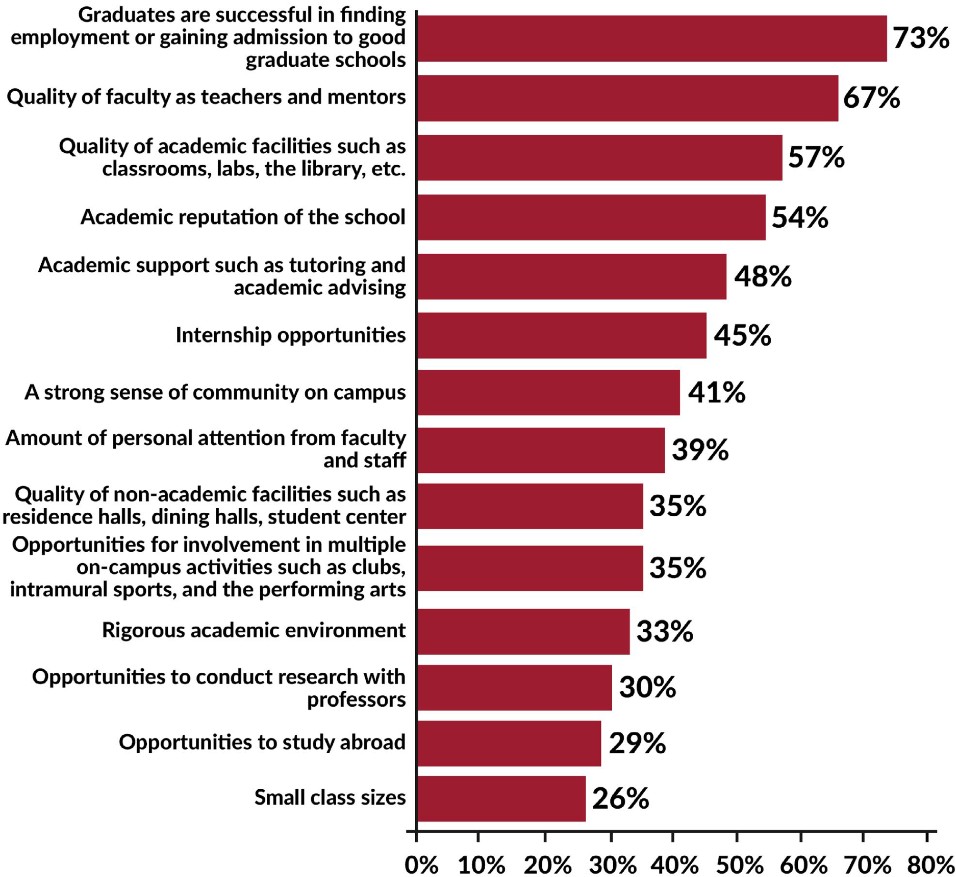
Sabra Fiala
July 3, 2018

While there is a standard list of some 30 college choice characteristics, it is pretty clear there are two choice variables of paramount importance: cost and the academic experience.
First, let’s look at cost.
Recently, Stamats published a fascinating eBook entitled, HigherEdTALK™: Tuition Intelligence for Smarter Recruitment. This 16-page book looks at four key questions:
We sorted the data by geographic regions and established price expectations for the Northeast, South, Midwest, and West. Not surprisingly, this data clearly shows that schools perceived as relatively inexpensive in the East are considered very expensive in the Midwest. Geographic relativism reigns.
While this data is illuminating, there is another consideration that must be entertained, and that is the relationship between cost and ROI. In other words, value. The cost issue is best framed in the question, “Are you worth the money?” or, “Is the value I am receiving greater than the investment (dollars and time) I am making?”
Page 8 of the eBook offers some critical insight into the question of value. It looks at the choice variables students consider very important. The more of these characteristics you offer, the more likely a student is going to be willing to entertain a higher cost.

As you can see, the top five choice characteristics all relate to the second big choice driver: the larger academic experience.
Based on this research, the academic experience is much more than the list of majors offered and includes such things as:
One important reminder. It is one thing to have these qualities and characteristics. It is quite another to be known for having these qualities and characteristics.
Recognizing the importance of the academic experience in the overall college choice process, Stamats recently did a study that drilled down specifically on the academic side of the conversation. We asked students to define the overall academic experience.
Here are 18 or so qualities they use to define the academic experience beyond having their major of choice:
As you can see, students, particularly better students, have a surprisingly rich definition of the academic experience.
So what does this all mean?
Well, it makes the case that your academic experience, including your array of majors, is one of your most important strategic assets. The key is to offer in-demand programs and deliver those programs and accompanying experience with great verve.
Second, once a quality academic experience is in place, it is critically important to build your reputation (or brand) around that complete experience. Oddly, most colleges and universities tend to focus on only a handful of these characteristics when they communicate to prospective and inquiring students.
One reminder about reputation building. While it is important to offer great programs and experiences, it is even more important to be known for offering these programs and experiences.
Third, it is also important to capture data to highlight your successes. While your voice may have credibility in the marketplace, the voice of your customers (current and former students) is even greater. Capture both data and anecdotes to illustrate your data. In this way, you will have a compelling verbal and visual vocabulary to help tell your story.
Data also supports your value proposition. The more data that clearly establishes your ROI the better.
Perceptive leaders manage their portfolio of academic programs much like they do their personal investment portfolios.
They routinely invest in programs that are in demand (growing). They reduce the number of programs that are under-performing. Moreover, they make timely and well-thought-out decisions about what new programs to offer.
When asked about a ratio of programs, I typically suggest something like this:
The key, of course, is to manage the portfolio and not be managed by the portfolio.
One thought about cash cows. There is a great danger in robbing cash cows of the revenue they produce to prop up under performing programs. Failing to reinvest in your cash cows will eventually leave them starved for resources.
One persistent myth is that better marketing will help revitalize low-demand programs. This is almost never true. Marketing does not create demand. Instead, marketing aligns opportunity with demand. If students interested in your programs are not aware of them, marketing will help. However, marketing will not increase the number of students who are interested in a program.
Low enrolled programs, in most cases, are low enrolled because of low student interest, not poor marketing.
Ready to Get Started?
Reach out to us to talk about your strategy and goals.